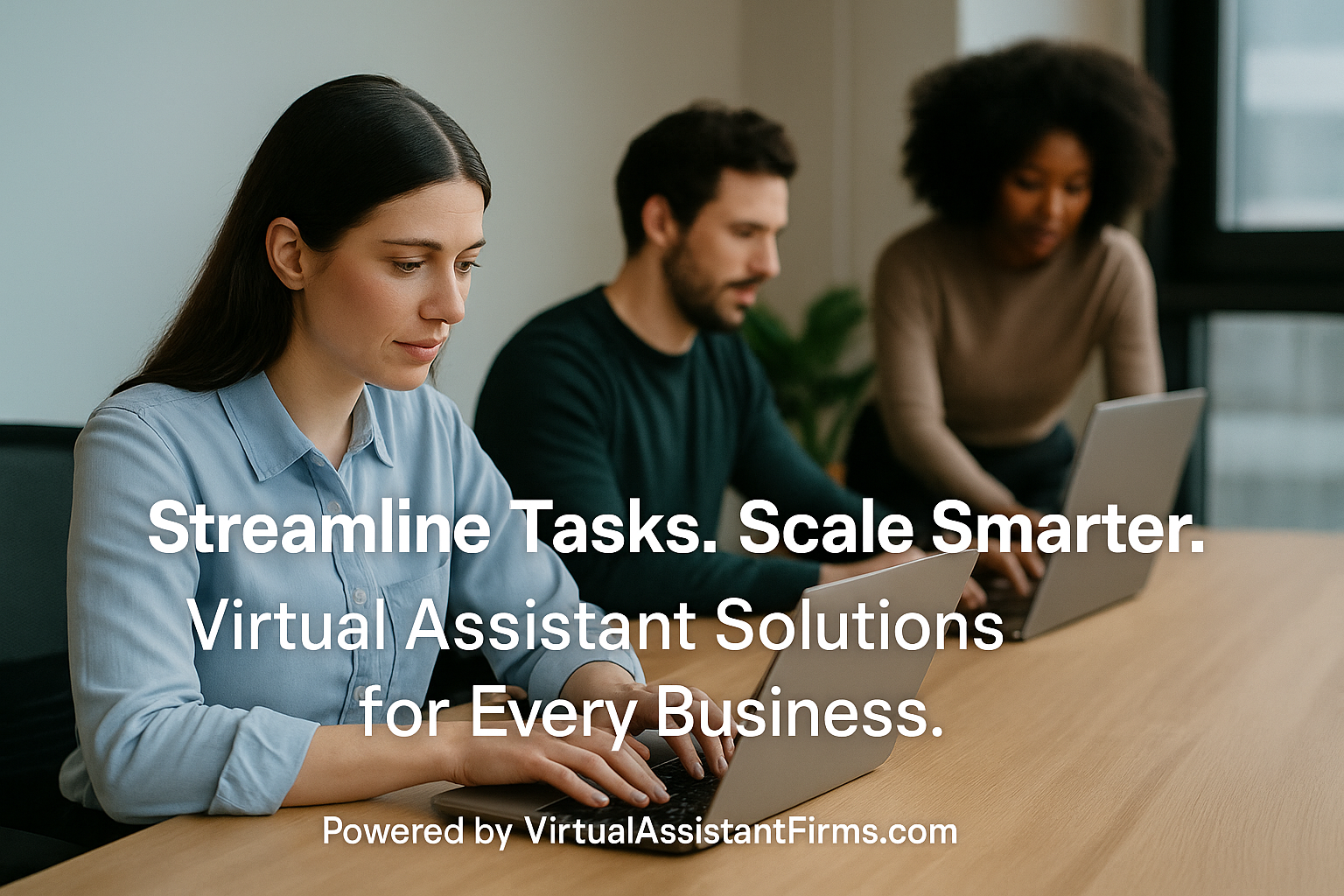Introduction
In today’s fast-paced business environment, entrepreneurs and companies are constantly seeking ways to optimize operations, reduce costs, and focus on core competencies. One solution that has gained significant traction is the utilization of virtual assistants (VAs). These professionals offer a flexible and cost-effective means to handle various tasks, allowing businesses to scale efficiently.

1. The Strategic Advantage of Virtual Assistants
Cost-Effectiveness and ROI
Hiring a full-time, in-house employee comes with expenses beyond just salary—benefits, office space, equipment, and more. Virtual assistants, on the other hand, often work remotely and on a contractual basis, eliminating many of these overhead costs. In fact, businesses can save up to 90% compared to hiring full-time staff .
Flexibility and Scalability
VAs offer unparalleled flexibility. Whether you need assistance for a few hours a week or full-time support during peak seasons, virtual assistants can adapt to your business’s changing needs. This scalability ensures that you’re not overcommitting resources during slower periods.
2. Real-World Success Stories
E-commerce Growth through VA Support
A small e-commerce company struggling with customer queries and order fulfillment hired a dedicated VA specializing in e-commerce support. This move led to a 50% increase in sales .
Marketing Agencies Leveraging VAs
A digital marketing agency overwhelmed with managing multiple client campaigns turned to virtual assistants for support. Tasks like social media content creation and email marketing were delegated, resulting in improved client engagement .
3. Identifying Tasks to Delegate
Administrative and Operational Tasks
Email management
Calendar scheduling
Data entry
Customer service inquiries
Specialized Functions
Social media management
Content creation
Bookkeeping
CRM management
By delegating these tasks, business owners can focus on strategic growth initiatives.
4. Best Practices for Hiring Virtual Assistants
Defining Clear Job Descriptions
Before hiring, outline the specific tasks and responsibilities you expect the VA to handle. This clarity ensures that both parties have aligned expectations.
Effective Onboarding Processes
Provide your VA with necessary resources, tools, and training. A well-structured onboarding process sets the foundation for a successful working relationship.
5. Tools and Technologies for Managing VAs
Communication Platforms
Project Management Tools
Utilizing these tools facilitates seamless collaboration and task tracking.
6. Building Long-Term Relationships with VAs
Establishing Trust and Accountability
Regular check-ins and transparent communication foster trust. Setting clear goals and expectations ensures accountability.
Continuous Feedback and Development
Provide constructive feedback and opportunities for skill development. Investing in your VA’s growth benefits both parties.
7. Overcoming Common Challenges
Time Zone Differences
Implement overlapping working hours or flexible schedules to ensure real-time communication when necessary.
Ensuring Data Security
Use secure platforms for data sharing and ensure VAs sign confidentiality agreements to protect sensitive information.
8. Measuring the Impact of Virtual Assistants
Key Performance Indicators
Task completion rates
Response times
Customer satisfaction scores
Adjusting Strategies Based on Metrics
Regularly review performance metrics to identify areas for improvement and adjust strategies accordingly.
9. Future Trends in Virtual Assistance
AI Integration
The integration of AI tools with virtual assistance is on the rise, enhancing efficiency and expanding capabilities.
Expanding Roles and Responsibilities
As businesses recognize the value of VAs, their roles are evolving to include more strategic responsibilities.
10. Conclusion
Integrating virtual assistant support into your business operations offers numerous benefits—from cost savings and increased efficiency to scalability and access to specialized skills. By following best practices and leveraging the right tools, businesses can build successful, long-term relationships with VAs, positioning themselves for sustained growth.
Ready to scale your business with virtual assistant support? Visit Virtual Assistant Firms to find the perfect match for your needs.
Frequently Asked Questions
Q1: What tasks can I delegate to a virtual assistant?
A: Tasks range from administrative duties like email management and scheduling to specialized functions such as social media management, content creation, and bookkeeping.
Q2: How do I ensure data security when working with a VA?
A: Use secure platforms for data sharing, implement two-factor authentication, and have VAs sign confidentiality agreements.
Q3: Can virtual assistants work in different time zones?
A: Yes, many VAs offer flexible schedules and can adjust their working hours to overlap with your business hours.
Q4: How do I measure the performance of my virtual assistant?
A: Track key performance indicators such as task completion rates, response times, and customer satisfaction scores.
Q5: What tools are essential for managing virtual assistants?
A: Communication tools like Slack and Zoom, and project management platforms like Trello and Asana are commonly used.
Q6: Where can I find reliable virtual assistant services?
A: Virtual Assistant Firms offers a curated list of professional VA services tailored to various business needs.
Frequently Asked Questions
Let’s address any doubts or questions you may have
A platform where freelancers and employers connect for projects, internships, and job opportunities.
Sign up as an employer, navigate to the “Post a Project” section, and fill in the required details.
Freelancers can browse projects and submit tailored proposals directly through the platform.
Yes, the platform supports both short-term gigs and long-term contracts.
Freelancers skilled in various fields like design, development, writing, marketing, and virtual assistance.
Employers post internship opportunities, and candidates can apply by submitting their profiles.
Yes, freelancers are verified based on skills, experience, and reviews to ensure quality.
Absolutely, freelancers can collaborate with employers from any location.
Payments are processed securely through the platform, ensuring safety for both parties.
The platform may charge a service fee or commission; details are available in the pricing section.
Employers can review freelancer profiles, portfolios, and client ratings.
Yes, integrated tools for communication, task tracking, and file sharing are available.
Payments are transferred directly to freelancers through secure methods like PayPal or bank transfers.
Yes, recurring projects can be scheduled and managed seamlessly.
A dedicated support team is available to help with account, payment, or project-related queries.

